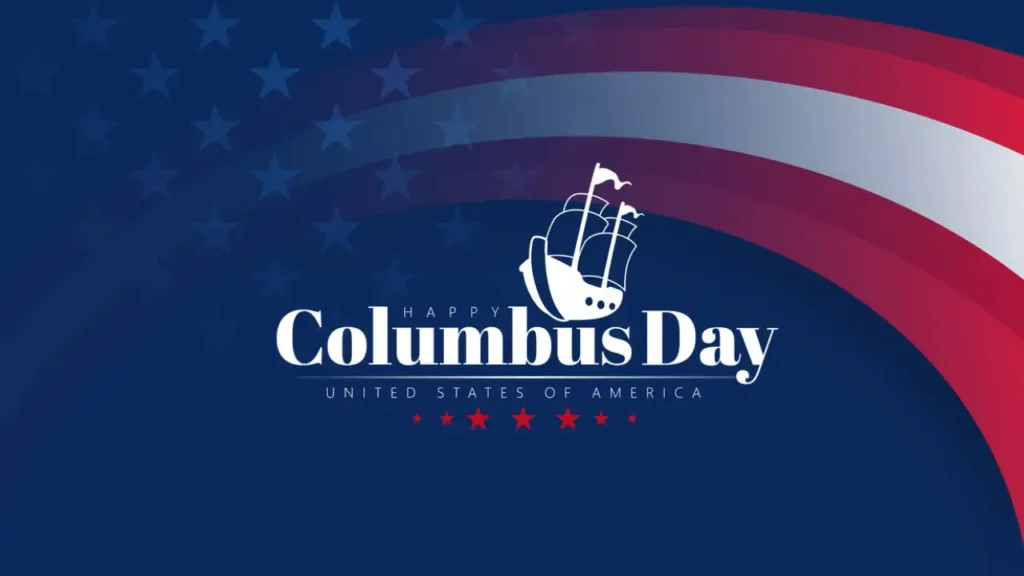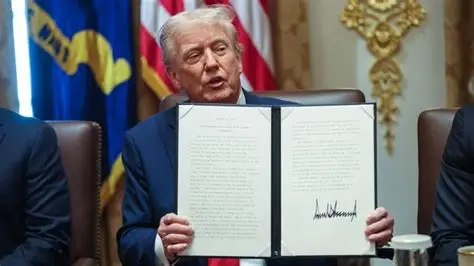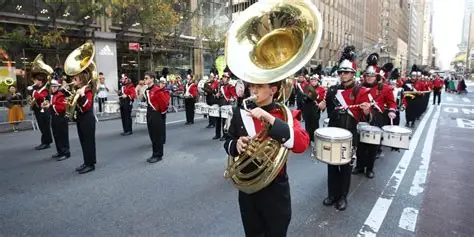
Columbus Day 2025 is already stirring national debate after former President Donald Trump signed an official proclamation celebrating Italian Americans and their historical contributions to the United States. Standing before reporters at the White House on October 9, 2025, Trump declared passionately, “Columbus Day we’re back, Italians. We love the Italians.”
His words—both nostalgic and defiant—revived an age-old conversation about the meaning, history, and controversy surrounding Columbus Day, one of America’s most debated national holidays.
🗓️ When Is Columbus Day 2025 Celebrated?
The United States will celebrate Columbus Day 2025 on Monday, October 13, as it does every year on the second Monday of October. It remains a federal holiday, meaning government offices, banks, and many schools will close in observance.
While many see the day as a tribute to Christopher Columbus’s exploration and Italian American heritage, others view it as a reminder of the colonial violence and oppression of Indigenous peoples that followed. The tension between those two narratives continues to define the modern meaning of the holiday.
⚓ The Origins of Columbus Day: A Story of Celebration and Reconciliation
To truly understand Columbus Day 2025, it’s important to revisit how and why this holiday began more than a century ago.
The first national Columbus Day was declared on October 21, 1892, by President Benjamin Harrison to mark the 400th anniversary of Columbus’s 1492 voyage across the Atlantic. Columbus’s expedition led to the European discovery of the Americas—an event that shaped world history.
But beneath the surface, this proclamation was about much more than celebrating exploration. It was an attempt to mend diplomatic and ethnic divisions after one of the darkest chapters of anti-immigrant violence in American history.

😔 The Tragic Event That Sparked the Holiday
In 1891, a year before the first Columbus Day, 11 Italian Americans were lynched in New Orleans following the murder of the city’s police chief. Despite a lack of evidence, local outrage targeted Italian immigrants—who were wrongly accused of being involved in the crime.
When a jury acquitted the suspects, an angry mob stormed the jail and killed 11 Italian men, some of whom were not even connected to the case. It was one of the largest mass lynchings in U.S. history.
The attack caused outrage in Italy and created a diplomatic crisis between the two nations. Seeking to ease tensions and honor the Italian American community, President Harrison issued a proclamation encouraging schools and communities to celebrate Christopher Columbus, an Italian-born explorer whose name symbolized discovery, faith, and perseverance.
Thus, Columbus Day was born—not only as a celebration of exploration but as a gesture of reconciliation and inclusion for Italian Americans facing prejudice.
🇮🇹 Italian American Heritage and National Recognition
By the early 20th century, Italian immigrants had become a vital part of America’s industrial and cultural landscape. Many Italian Americans saw Columbus as a symbol of their contributions to their new homeland.
In 1934, after extensive lobbying by the Knights of Columbus, President Franklin D. Roosevelt made Columbus Day a permanent national holiday. The date was originally fixed to October 12, the traditional anniversary of Columbus’s landing.
In 1971, the Uniform Monday Holiday Act moved the celebration to the second Monday in October, creating a long weekend for workers while maintaining the holiday’s significance. Today, Columbus Day 2025 continues that federal tradition, though its meaning remains complex and deeply personal for many communities.

⚖️ The Growing Controversy Around Columbus Day
While Columbus Day was originally created to celebrate Italian heritage and American unity, it has increasingly become a symbol of colonialism and oppression for Indigenous communities.
Historical records show that Columbus and his men enslaved, exploited, and mistreated Indigenous peoples in the Caribbean during their expeditions. His arrival marked the beginning of centuries of European conquest and cultural destruction in the Americas.
According to History.com, Columbus’s expeditions were accompanied by forced labor, violence, and the spread of disease, which devastated native populations. The Natural Resources Conservation Service describes this era as one where “human values were at an all-time low, and hierarchical oppression defined society.”
For these reasons, many Americans have re-evaluated how and whether Columbus should be celebrated. Dozens of U.S. states and cities have since replaced or combined Columbus Day with Indigenous Peoples’ Day, honoring native communities and their resilience.
💬 Trump’s 2025 Columbus Day Proclamation: A Bold Statement
Against this backdrop, Donald Trump’s 2025 proclamation reaffirmed his support for traditional Columbus Day celebrations. By praising Italian Americans and calling for renewed recognition of their heritage, Trump sought to revive a patriotic and cultural tradition that many feel has been fading.
His statement—“We love the Italians”—was both a nostalgic nod to immigrant roots and a political signal to voters who value cultural pride. It mirrored his past rhetoric emphasizing heritage, nationalism, and faith.
Supporters of Trump’s proclamation applauded him for defending Italian American culture and preserving historical tradition. Critics, however, argued that his message ignored the painful legacy of colonialism and the voices of Indigenous peoples who continue to call for a more honest reckoning with history.
🌎 Columbus Day 2025 vs. Indigenous Peoples’ Day: The Debate Continues
In recent years, the conversation around Columbus Day has evolved beyond simple celebration or condemnation. Many schools, local governments, and institutions now recognize Indigenous Peoples’ Day alongside or in place of Columbus Day.
This newer observance highlights Native American history, resilience, and culture, focusing on healing and education rather than glorifying conquest. States like California, Minnesota, and Maine now officially observe Indigenous Peoples’ Day, while others continue to celebrate Columbus Day—reflecting the nation’s diverse and divided perspectives.
🏛️ Why Columbus Day Still Matters
Despite the controversy, Columbus Day 2025 continues to hold meaning for millions of Americans. For Italian American families, it remains a proud acknowledgment of their ancestors’ struggles and achievements. For others, it serves as a reminder of the complex history of exploration, immigration, and identity that defines the United States.
The dual meaning of the holiday—both as a celebration of heritage and a call for reflection on history’s darker sides—ensures it will remain part of the national conversation for years to come.
💡 Final Thoughts
Columbus Day 2025 stands at the crossroads of tradition and change. As Donald Trump’s proclamation reignites debate, Americans are once again faced with a familiar question: What should this day truly represent?
Whether viewed as a day of Italian American pride, a moment to honor Indigenous resilience, or a reminder to confront historical truths, Columbus Day continues to challenge the nation to think critically about its past—and the values it chooses to celebrate in the future.
As the U.S. prepares to mark Columbus Day 2025, one thing is clear: this holiday remains a mirror reflecting America’s diverse, complicated, and evolving identity.



One Comment